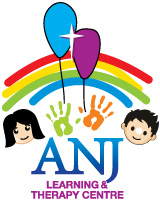Is ADHD a disability? This is one of the questions we are asked by many of our clients. ADHD stands for Attention Deficit Hyperactivity Disorder. ADHD is a long-term disorder characterized by impulsivity, hyperactivity, and trouble paying focus. One of the most prevalent neurodevelopmental diseases in children is ADHD.
It frequently persists into adulthood and is typically initially diagnosed in infancy. Children with ADHD may struggle to focus, manage impulsive actions (doing without considering the consequences), or be extremely active.
Is ADHD a Disability?
The answer to the question – Is ADHD a Disability can be understood by knowing various facts like symptoms of ADHD, Categories of ADHD, the causes, and Attention Deficit Hyperactivity Disorder in children and Adults. You could speak to one of the experts at ANJ Therapy Sydney to know more.
Categories of ADHD (Attention Deficit Hyperactivity Disorder)
- ADHD, combined type: This kind of ADHD, which is the most prevalent, is distinguished by impulsive and hyperactive behaviors in addition to inattention and distractibility.
- ADHD, Impulsive/hyperactive type: This kind of ADHD, which is the least frequent, is distinguished by impulsive and hyperactive behaviors without inattention or distractibility. The individual fidgets and speaks a lot. Long periods of stillness are challenging (e.g., for a meal or while doing homework). Children who are younger may constantly run, jump, or climb. The person is restless and struggles with impulse control. Impulsive persons may talk suddenly, seize objects from others, or interrupt others frequently.
- Inattentive and distractible type: Inattention and distractibility without hyperactivity are the main features of this kind of ADHD. It is challenging for the person to arrange or complete a task, pay attention to details, or follow directions or dialogues. The individual becomes easily sidetracked or overlooks little elements of everyday activities,
Symptoms of (ADHD) Attention Deficit Hyperactivity Disorder
It is typical for kids to occasionally struggle with their attention spans and manners. Nevertheless, these behaviors do not just disappear in children with ADHD. The symptoms persist, can be severe, and can make it difficult to interact with friends, family, or coworkers. An individual with ADHD shows the following symptoms:
- Often daydream.
- Lose or forget stuff a lot.
- A lot of fidgeting or squirming.
- Excessively speak.
- Make stupid errors.
- Take unwarranted risks.
- Have difficulty avoiding temptation.
- Have issues sharing the spotlight.
- Having trouble getting along with other people.
Causes of Attention Deficit Hyperactivity Disorder
Current research indicates that heredity plays a significant role in ADHD, despite the fact that the cause(s) and risk factors are unclear. Scientists are researching additional potential causes and risk factors in addition to genetics, such as:
- Brain damage
- Exposure to environmental dangers, such as lead, when pregnant or while young
- Smoking and drinking when pregnant
- Premature birth
- Little birth weight
Attention Deficit Hyperactivity Disorder in Children
The symptoms of hyperactivity are often prevalent and noticeable by the age of 7, although they can also be seen in very young toddlers. Prior to a youngster encountering the demands of primary school, inattention or attention deficit disorder could not be noticeable.
Together with poor academic performance, problematic relationships, and low self-esteem, children with ADHD may also have these issues. Sometimes, symptoms become better as we mature. Some individuals, however, never fully outgrow their ADHD symptoms. However, they can pick up successful coping mechanisms.
Attention Deficit Hyperactivity Disorder in adults
Adult attention-deficit/hyperactivity disorder (ADHD) is a mental health condition that entails a number of ongoing issues, including impulsivity, hyperactivity, and difficulties paying attention. Low self-esteem, unsteady relationships, inadequate career or academic performance, and other issues might result from adult ADHD.
While it is known as adult ADHD, early childhood is when the symptoms first appear. ADHD may not always be identified or diagnosed until the patient is an adult. The signs of adult ADHD might not be as obvious as those of child ADHD. Adults may have less hyperactivity, but they may still suffer from impulsivity, restlessness, and focus issues.
People with ADHD may struggle to prioritize and concentrate, which can result in missed deadlines, interrupted meetings, and neglected social activities. The inability to restrain impulses can cause a variety of behaviors, such as impatience when driving in traffic or in line, as well as mood swings and angry outbursts.
Adult ADHD signs might show themselves as:
- Impulsive
- issues with prioritization and disorganization
- Having trouble focusing on one activity at a time and multitasking
- Excessive motion or agitation
- Inadequate planning Little tolerance for frustration
- Often changing moods
- Difficulties completing assignments and following through

